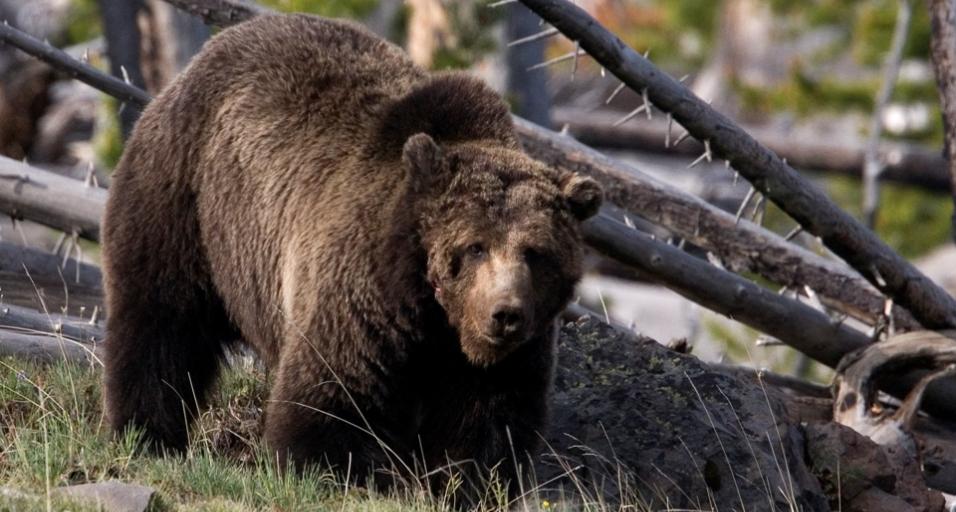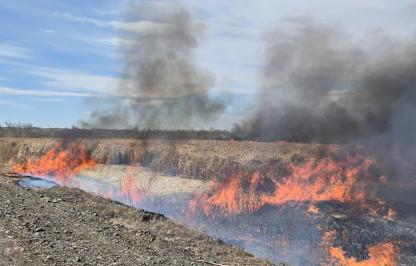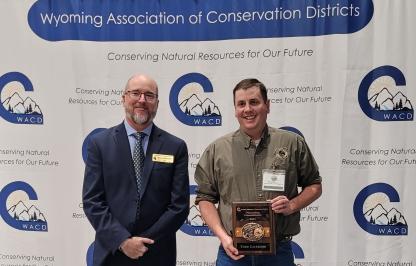Time to be bear aware
The Wyoming Game and Fish Department reminds outdoor recreationalists and rural homeowners to maintain awareness of bears while enjoying the outdoors this year.
Bear Wise Wyoming Coordinator Dusty Lasseter said that at this time of year, bears are emerging from their dens. “Typically, male bears emerge from their dens in late-March and April, while females and young-of-the-year cubs emerge in late April and early May,” said Lasseter. “Now is the time to remind ourselves to be ‘bear aware’ and take the necessary precautions to avoid potential conflicts.”.jpg)
Game and Fish Department strives to manage conflicts between people and large carnivores. “The best way to manage conflicts is to be proactive and try to prevent them from happening. So, it’s good to know that in most conflict situations, bears do not interact with people; rather, they obtain unsecured human foods, livestock or pet foods, garbage, or birdseed from developed areas, many times resulting in property damage,” according to Lasseter.
If you live in bear country, Lasseter recommends keeping garbage, livestock feed and birdseed properly stored and unavailable to bears. Barbeque grills should be kept clean and stored in a garage or shed whenever possible. “The majority of the people in rural areas of Wyoming do a great job of securing attractants to keep foods away from bears, but it’s important to remain vigilant and remember to secure attractants to minimize the potential for conflict,” Lasseter said.
Those who recreate in grizzly bear country also need to be aware of the potential for encounters with grizzly bears. When hiking, be cautious and alert. Hike in a group and make noise as you travel so bears can hear you. Learn to recognize areas of heavy bear use by knowing how to identify tracks, scats, and diggings, and if you smell a carcass, avoid it. Flocks of magpies or ravens often indicate a nearby potential food source for bears. Remember, when bears scavenge large animals they often cover what they can’t eat with brush or dirt and may stay nearby for several days to defend it from other bears.
Antler hunters should be aware as they search the foothills for sheds, as bears tend to wander over the same big game winter ranges in search of winter-killed deer and elk. Commercially available bear spray is effective for stopping aggressive bears. Carry bear spray in a readily accessible manner and know how to use it.
“Those recreating and living in grizzly bear country have done an exceptional job increasing awareness and taking the necessary precautions to provide for the long-term viability of grizzly bears. Without the proactive measures and awareness already in place, we would not be where we are at today with grizzly bear management and conservation in Wyoming,” Lasseter said.
Bear Wise Wyoming Coordinator Dusty Lasseter said that at this time of year, bears are emerging from their dens. “Typically, male bears emerge from their dens in late-March and April, while females and young-of-the-year cubs emerge in late April and early May,” said Lasseter. “Now is the time to remind ourselves to be ‘bear aware’ and take the necessary precautions to avoid potential conflicts.”
.jpg)
Game and Fish Department strives to manage conflicts between people and large carnivores. “The best way to manage conflicts is to be proactive and try to prevent them from happening. So, it’s good to know that in most conflict situations, bears do not interact with people; rather, they obtain unsecured human foods, livestock or pet foods, garbage, or birdseed from developed areas, many times resulting in property damage,” according to Lasseter.
If you live in bear country, Lasseter recommends keeping garbage, livestock feed and birdseed properly stored and unavailable to bears. Barbeque grills should be kept clean and stored in a garage or shed whenever possible. “The majority of the people in rural areas of Wyoming do a great job of securing attractants to keep foods away from bears, but it’s important to remain vigilant and remember to secure attractants to minimize the potential for conflict,” Lasseter said.
Those who recreate in grizzly bear country also need to be aware of the potential for encounters with grizzly bears. When hiking, be cautious and alert. Hike in a group and make noise as you travel so bears can hear you. Learn to recognize areas of heavy bear use by knowing how to identify tracks, scats, and diggings, and if you smell a carcass, avoid it. Flocks of magpies or ravens often indicate a nearby potential food source for bears. Remember, when bears scavenge large animals they often cover what they can’t eat with brush or dirt and may stay nearby for several days to defend it from other bears.
Antler hunters should be aware as they search the foothills for sheds, as bears tend to wander over the same big game winter ranges in search of winter-killed deer and elk. Commercially available bear spray is effective for stopping aggressive bears. Carry bear spray in a readily accessible manner and know how to use it.
“Those recreating and living in grizzly bear country have done an exceptional job increasing awareness and taking the necessary precautions to provide for the long-term viability of grizzly bears. Without the proactive measures and awareness already in place, we would not be where we are at today with grizzly bear management and conservation in Wyoming,” Lasseter said.
Wyoming Game and Fish (307) 777-4600




